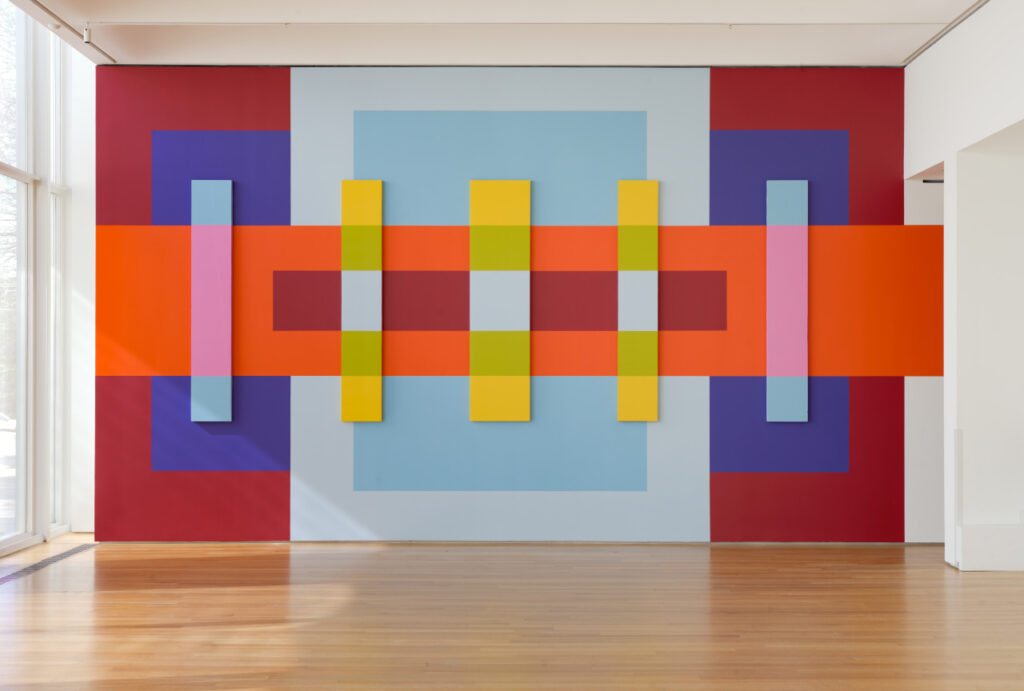Through Line (work of art)
Artwork Info
Key Ideas
- This work is made up of painted polystyrene panels. It is an example of geometric abstraction.
- Martha Clippinger explores color theory in her work to create contrast, movement, and the appearance of transparency.
- Clippinger’s work was inspired by a variety of other works of art in the NCMA collection. These include 20th-century abstract paintings, egungun masquerade costumes, and quilts from the American South.
Learn More
Martha Clippinger is a contemporary artist who lives and works in Durham, North Carolina. She creates paintings, sculptures, and textiles. Clippinger is known for her use of color theory and geometric abstraction in her work.
Color theory is a set of rules, guidelines, and principles that help artists decide how to use color effectively in their artwork. By understanding color theory and how human eyes process color, Clippinger is able to create works that trick the eye. She uses different colors and three-dimensional elements to create the illusion of objects moving forward or backward in space. By placing certain colors beside each other, she creates contrast and makes objects appear transparent.
Through Line is made from paint and polystyrene panels. Polystyrene is a type of plastic that is used to make a variety of consumer products. The combination of shapes and different colors used in this work is a form of geometric abstraction. This is a style of abstract art that features geometric, hard edge, or linear shapes.
The vibrant colors and geometric patterns in this work were inspired by several other works of art in the NCMA collection. The works include 20th-century abstract paintings, egungun masquerade costumes, and quilts from the American South. Egungun is a Yoruba masquerade that honors ancestors.
While these works are made of construction grade materials, I was thinking about textiles while creating the designs. Quilts have played a major role in my development as an artist. I grew up with my great-grandmother’s quilts, and I remember lying in bed, observing the colors and patterns of the fabrics and even folding the quilt to test color combinations and pairings that were not sewn together. This activity of observing color and testing combinations held my attention then and continues to guide my work today. I use simple geometries to explore color and its effects. In Through Line, I use color to create a spatial dynamic where areas move forward or recede, and some juxtapositions of color create a sense of transparency.
Martha Clippinger
Additional Resources
Resources for Teachers
- Read the artist’s biography.
- Watch a video of Clippinger discussing her work.
- Read an article about color theory and how it can be used to create optical illusions.
Resources for Students
- Watch a video of Clippinger discussing her collaboration with Zapotec weavers.
- Watch a video that explores the artist’s exhibition at the Elizabeth Harris Gallery.
- Watch a video of the installation of Vibrating Boundaries.

